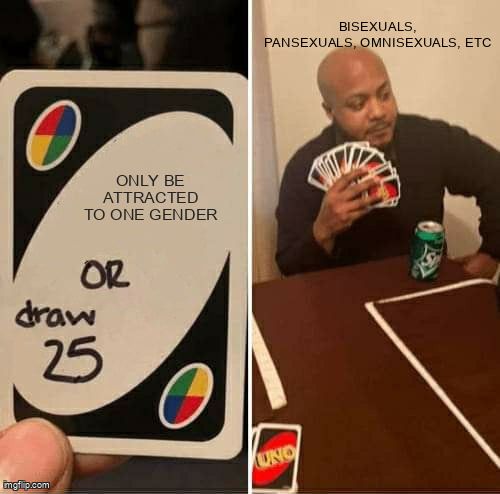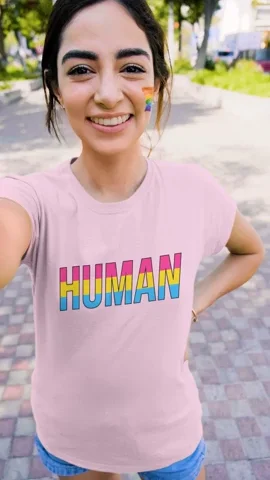While people who are homosexual, gay, or lesbians are usually only attracted to one gender, many people identify as well with identities on the multisexual spectrum and are attracted to multiple genders.
Bisexual is the most commonly known term, often used by people who are attracted to more than one gender (but not all). Two other commonly chosen labels are pansexual and omnisexual.

What is the difference between these two identities, and how do you know which term feels right for you?
Who uses the label "omnisexual"?
"Omnisexual" comes from the Latin word omnis meaning “all”, and is often used by people who are attracted to all genders. Someone who is omnisexual could be attracted to men, women, nonbinary people, and others across the gender spectrum.

Things to consider:
You don't need to have dated, or been attracted to, people of multiple genders to use the label.
You don't need to be equally attracted to all genders.
You may have a preference for one gender over another.
You may recognize that a person's attraction to one gender feels different than their attraction to another.
Being open to the possibility of dating someone of any gender is a sign this might be a good term for you.

Who uses the label "pansexual"?
"Pansexual" comes from the Greek prefix "pan" meaning “all” , and is often used by people who are attracted to people of all genders, regardless of their gender. Like omnisexual, someone who is pansexual could be attracted to men, women, nonbinary people, and others across the gender spectrum.

Things to consider:
You may like this label if you reflect that someone's gender doesn't affect what your attraction to them feels like.
You may find aspects of people's personalities and appearance, separate from or regardless of their gender identity, to be what makes them attractive to you.
Like omnisexual, you don't need to have dated, or been attracted to, people of multiple genders to use the label.
Being open to the possibility of dating people of any gender, regardless of what it is, is a sign this might be a good term for you.

How do I know which label is right for me?
There is no right or wrong answer! As with any label, it's up to you to choose what feels right for you. Labeling your attraction may help you find people who have similar experiences for advice, history, community, and more.

Some questions to ask yourself:
Who have I been attracted to in the past? Who do I imagine myself being in a relationship with? What are their genders?
Have I ever been attracted to someone without knowing their gender?
How does someone's gender impact my attraction towards them? Does my attraction to one gender feel similar or different to others?
How does it feel to call myself "omnisexual" or "pansexual"? Do I relate to others who use these labels?
Both pansexual and omnisexual people would consider dating people across the gender spectrum. People who use the omnisexual label tend to consider gender as a factor in their attraction towards someone, whereas someone who uses the label pansexual is less likely to.

You can practice introducing yourself like, "I am omnisexual" or "I am pansexual", and reflect on how you feel. You may find you relate to how other people describe their experiences.
For example, this blog post describes one Malaysian girl's experience being omnisexual.
In the video below, comedian Wayne Brady explains what it means for him to identify as pansexual:
Quiz
Molly has recently realized she is attracted to people of all genders and wants to come out to her friends. What should she consider when deciding if she wants to use the label "omnisexual" or "pansexual", or something else? Select all that apply:
Take Action
Whether you choose to label yourself as "omnisexual", "pansexual" or something else, your experience of the world as someone who is attracted to people of multiple genders is valid!

Take time to understand yourself and how you feel, and reach out to friends, family, and other community members who will support your feelings and identity.
To further reflect on which label might feel best for you:
Your feedback matters to us.
This Byte helped me better understand the topic.
